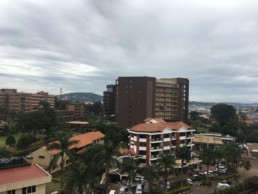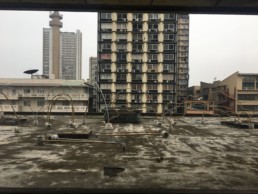Over 3000 deaths in Italy, yet no graphic photos of the dying or dead. Dear White Journalists, can you photograph Africa with the same level of respect and empathy? Dignity is a fundamental human right, not the privilege of a few.
by Nana Kofi Acquah

What does it mean? We all know, when an outbrake takes place in Africa the media is full of inhumane pictures and people of African heritage should deal with it. This time the so called western world or global north is on the spotlight. What exactly does it mean for Africas creative industry? Several African countries are under lock down, certain borders are closed, no entry is possible. This is an opportunity to rethink about the creative industry – is it a chance to come up with solutions for the fashion economy?
Let us have a look at manufactures, in Ghana, Ethiopia, Kenya, Marocco or South Africa. In the mentioned countries you can find international companies, like, H&M, S.Oliver or Tchibo producing their products. Why can’t it not be possible for African designers? The COVID -19 pandemic is a challenge for every one on this planet. I believe this is an opportunity for the creative industry in Africa. It is time that African countries focus on the wealth that the creative economy brings by supporting trade in Africa. The time is now, to collaborate with neighbor countries and understand how markets can benefit from each other. Every country has his strength and weakness, once this is figured out, it should lead to a call for action. Do the governments in African countries really understand the creative industry? Up till now several governments aren’t paying attention to the creative economy, for so many creatives there is no funding available. They draw wealth from their own resources and from their inexhaustible ideas. For example, the fashion and textile industry in Africa is one billion dollar worth. Why does Africa not want to benefit from this? Unfortunately the cultural departments are not taking it serious enough, lack of Know How and the huge potential is not been recognized. It needs to be valued, so that change can break out. The growth of an industry will emerge by changing the narrative.
Emerging designers need to get very creative to keep their business alive and at the end it is not very efficient. Within the fashion and textile industry you need to be patient and face a lot of challenges. Most of the creatives have to deal with less infrastructures, less financial support and Know How. A lot of designers produce tailor made pieces. In Germany it is a prestige to get your outfits tailored, the piece would be so expensive so that only few people could afford it. Manufactures need financial support to secure the workflow. If manufactures would receive high amount of orders from local businesses and companies, they would have the chance to invest more in their staff and fashion businesses would increase faster. In addition fashion designers need manufactures they can rely on and they need to understand, that productions with 1-5 tailors will not allow them to grow. The interest in textiles and craftsmanship in African countries has increased in the recent years and it is highly promoted and supported in the global north. This traditional handcraft must also be demonstrated to emphasize the uniqueness of the different cultural groups. For this reason it is now necessary to bring this craft to the fore so that the work is valued appropriately. The work falls into the category of Haute Couture and that is the highest ranking within the fashion disciplines, which can only be mastered with manual skill. Nevertheless, the fashion economy needs a strategy and a financial injection. It’s time for Africa to make use of its economic potential in collaboration with the diaspora in order to reap the rewards. In countries, like Ghana, Nigeria, Uganda and Senegal there are approaches and projects that function as model projects, which now need to be supported. Above all it is necessary to increase trade in Africa. The trade routes should be more accessible and secure.

What is Africa waiting for? China has already flooded so many markets in Africa with their fast fashion products. It is time to create more Made In Africa products so that they appear on the international radar. Experts from Africa and the diaspora are ready to support. We hope that the African Continental Free Trade Area (AfCFTA) in July 2020 will come to live to boost trade. The time is now – Trade with Africa!

Image Title: Tongoro


